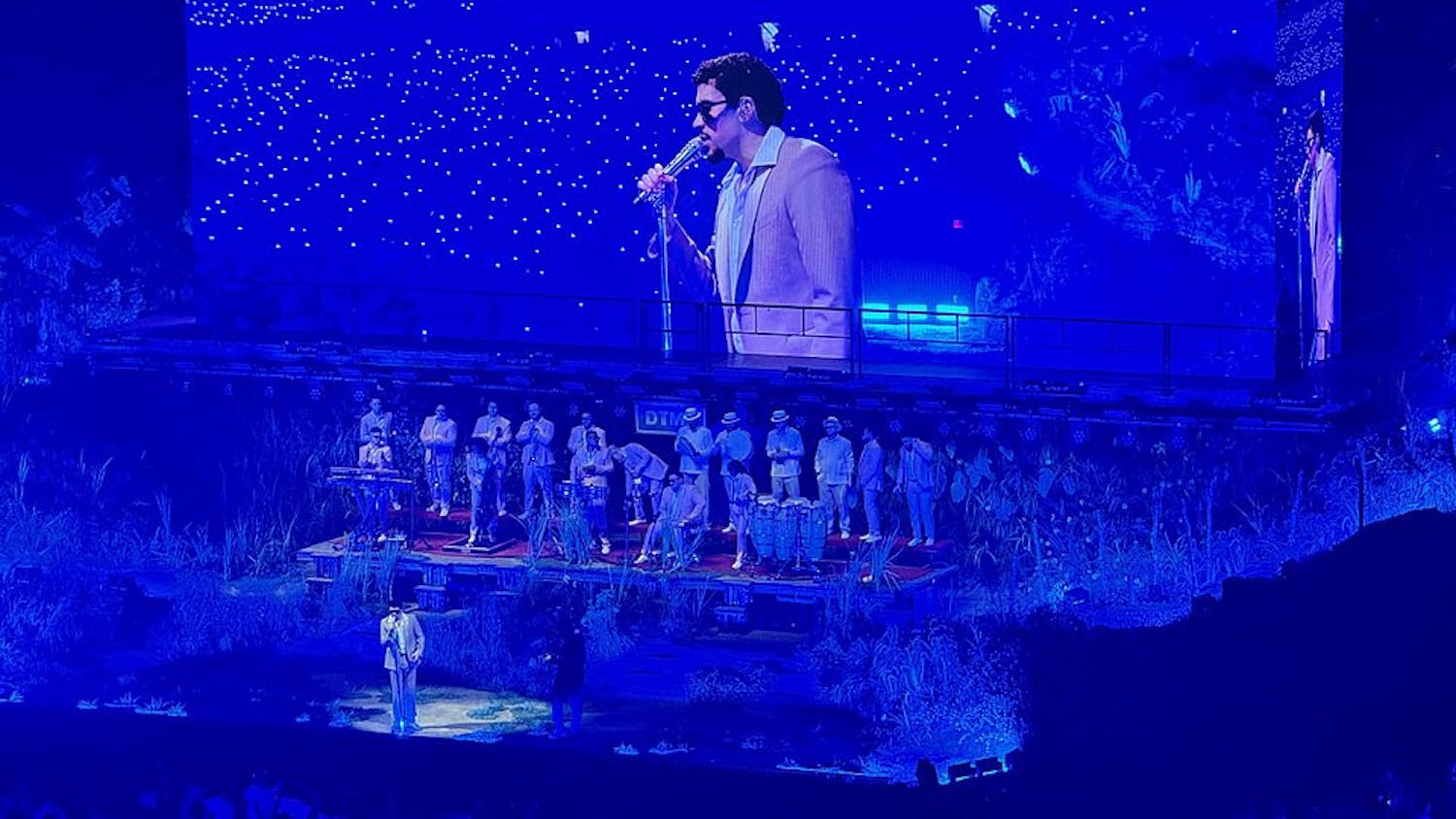On Saturday, March 16, 2019, at 5:03 p.m. the University of Michigan issued a text alert to its student body: “UM EAlert Ann Arbor: Active shooter in Mason Hall. Run, hide, fight.” I was visiting my brother in Ann Arbor for his birthday, and until then it had been a normal day.
Moments after the text, panic set in, but this was panic in shock. The room was silent, no one moved. Then suddenly, a return to reality. My brother — the loud, outgoing, chugs-a-protein-shake-in-class kinda guy — was unusually calm, reserved and methodical as he began calling and texting friends, asking where they were and if they were okay. Someone in a group chat had found an online police scanner. Beyond the sequence of brief, tense calls and updates from the police scanner, there was no other sound.
One of my brother’s friends was in Mason Hall, hiding. Another had been at the student organized vigil for the victims and communities of the New Zealand Mosque shootings. Mason Hall overlooks the Diag, a central campus courtyard, where the vigil was being held.
And that’s where things began to come together. The friend at the vigil said he had heard gunshots, and that the officers from the university’s Division of Public Safety and Security had poured into the Diag, telling students to run. Police and campus security were on their way to Mason Hall, and from my brother’s apartment we heard siren after siren pass by outside.
Security continued to search Mason Hall. Ten long minutes later, my brother and I received another text: “Unconfirmed reports of active shooter, Officers are in the area checking. Stay away from the area of Mason Hall.”
I sat on the couch with my brother, silence between us, as sound only came from the police scanner. My hands worried over a mug, restless, and as I looked I began to hyper-focus on the mug. I looked up and tried to ground myself in my surroundings, yet I couldn’t keep the thoughts at bay.
I had heard about the vigil that Michigan students were planning. It had sounded like a beautiful moment of support and community. However, in that moment, I was overwhelmed in its publicity and in the understanding of the vigil as a dependable time and place in which a large group of people would be in a small location. My brother’s friend had attended, and said he had heard gunshots.
So we sat there speculating. Could he be on the roof of Mason Hall? Was he attacking the vigil because it was a dense population of people, or for ideological purposes? The latter terrified me, and didn’t feel like such a leap. In the wake of the mosque shootings in New Zealand, an anti-immigration senator in Australia made inflammatory comments, blaming Muslim immigrants for the attack. This coupled with the facts that school shootings are nothing new in the United States and that there seems to be a growing sense of nationalism both here and abroad, made the alleged shooter in Mason Hall even more real.
Here was a person, though as the police scanner continued, maybe more than one person, with an intent to cause harm, in a way that looked all too similar.
“If it is an attack on the vigil, I think that’s a hate crime,” my brother’s girlfriend said. No response, but there was an air of understanding. Hate crimes, school shootings, nationalistic ideals and a fear of the other are not uncommon in the United States. So why wouldn’t it happen at a Big Ten school in my home state?
Fifteen minutes after the second text, my brother and his girlfriend received another: “UM ALERT UPDATE There does not appear to be an active threat to the community. DPSS continues to investigate. Continue to stay clear of the area.”
My brother’s friends were, at the moment safe, though still hiding, as we anticipate reports of injuries or deaths. We continued to wait for updates, check on friends and listen to the police scanner.
An hour later they received another text: “UM EAlert Ann Arbor UPDATE - There continues to be no indication of an active threat to the community. Police continue to investigate. Please stay away from Angell and Mason Hall.”
What had happened about the gunshots? Was the shooter still on the loose? Was there more than one? There was conflicting data all around. My mother texted us to say she heard that the shooter had been shot. My brother received a text in a group chat that mentioned popping balloons and screaming.
And that’s the absurdity of the situation. In the end, it was only members of a sorority in a room in Mason Hall, participating in a team-building balloon popping exercise that had thrown an entire city into panic and chaos.
We were initially quick to jump at the idea that it was intentional, that these women had knowingly created an environment of terror. Thankfully, this was not the case. This past week, the Michigan chapter of Alpha Kappa Delta Phi published an apologetic letter in the Michigan Daily explaining their team building exercise, and the oversight in their planning of the event.
But this is the context in which we now live. The sound of a popping balloon and a scream inside a university building has the power to call in canine squads and several police units. The fact that a vigil for a previous shooting was happening at the same time led people to believe it was an ideologically-fueled attack.
According to Education Week, in 2018 alone there were 24 school shootings which resulted in injuries and/or deaths, a total of 35 people killed, 28 of which were students and 79 people injured, and these are just school shootings alone.
The United States, in recent years, is not immune to public shootings. In this sense, the thought of a school shooting or attack on schools is not an unlikely thing in the minds of students today. In my undergrad experience at UW-Madison I’ve received text alerts about bomb threats to Memorial Union and potential shooters around the campus area. Going to school in a nation that is very aware of the possibility of attacks on students is a terrifying, yet normalized, paradigm in the United States.
In this context, it was no grand leap from several reports of hearing gunshots to thinking this could be an attack not only on students, but perhaps on students and people who are participating in a moment of support for the Muslim community, especially for that in New Zealand.
This is how my brother and I spent his 21st birthday, and how the city of Ann Arbor felt the day of March 16.
In this country, all it takes is a few balloons and screams to incite terror throughout an entire campus. We’ve become (rightfully) hypersensitive to the idea of school shootings because we’ve encountered these situations countless times before. Thus, in a culture that has normalized school shootings, the fear of it happening to us has become one of the primary characteristics of American studenthood.
Kelsey Stanczak is a senior studying molecular biology and English. What are your thoughts on America's attitudes towards school shootings? Send thoughts and comments to opinion@dailycardinal.com.






